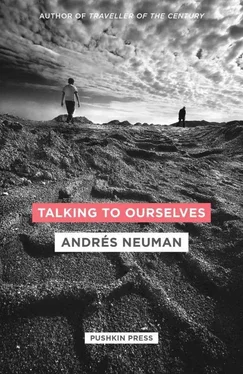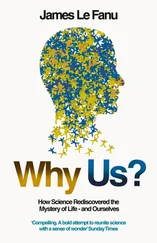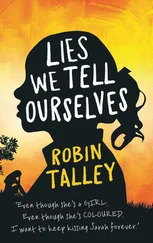In his recording, I can’t stop thinking about this, Mario said that debts of love also exist, and that we are fooling ourselves if we deny it. He said these debts can’t be repaid, but they can be silenced. And that I, if I understood correctly, did I? had hushed up his debts, so he was going to hush up mine.
I lock myself in the bathroom to listen to this passage, I hear his voice again, his voice talking to himself, and I can’t believe this voice has no person, a first person without anybody there, that my son is being spoken to by his father and yet Lito doesn’t have a father, that my husband talks about me and yet in the bathroom there is no one but me.
What did Mario know? This doubt weighs on me.
Doubt, debt.

He continued calling, and I picking up. I told him: No. And I hung up. He called again. I picked up again and I said: No. And I hung up again.
The only good thing about this unhealthy pursuit was that all of a sudden, after several months, I noticed I was getting moist. For the first time since I have been alone. And I was able to touch myself again. And while I was feeling, to cry. Orgasms, none.
The next time he called I told him to go down on his knees and beg if he really wanted to talk to me. Because I needed to know whether my shame and his were comparable. He said he understood me. I said I doubted that very much. He asked if Lito was at home. I told him it was none of his business. He implored me, in a very gentle voice, just to answer yes or no. I hesitated. I began to murmur: No, but. The conversation ended.
A few minutes later the doorbell rang.
I was pleased to see Ezequiel there, kneeling in the doorway. He looked like a religious portrait. I guessed he was sincere, because he didn’t even attempt to come in. He remained still. Silent. Gazing up at me. Like a tame animal. He looked off-colour. He had thinner shoulders and more pronounced cheekbones. I said to him: You’ve lost weight. He took this as a compliment and his face lit up. He made as if to get up. I immediately added: I don’t like it. He shrank back. It is the only time I have ever seen a man who is kneeling fall to his knees.
Realizing he couldn’t convince me, Ezequiel started to put on his Dr. Escalante face. As though I had a problem and he could diagnose it. I stood firm. When he realized I was serious, that I had no intention this time of letting him inside my house, Ezequiel clutched one of my legs. Only one. I didn’t move a muscle.
Ezequiel let go. He placed his hands on the floor and stood up. It took him some effort. He stared straight at me. At that moment, I expected him to suffer an attack of wounded pride. To raise his voice to me, to insult me, or something. But no: he began to snivel. And I knew that if he was capable of doing this to himself, then he was capable of doing anything to me.
I started closing the door. On the other side, Ezequiel began to stammer that he needed me.
I held the door.
Without looking out I replied: That’s exactly what I wanted to hear. Now leave my house. And never call again.
I continued closing the door. The mat in the entrance made a noise as it dragged along the floor. I had the impression of sweeping something.

Strange to be writing again. The last time was quite a while ago. In the meantime, I have had to reconcile myself to a few things. The first of these being the fact that the world kept going round as though nothing had happened.
Best not to elaborate too much on my classroom routine (when I don’t teach I get bored, when I teach I get frustrated), the values of my colleagues (how is it possible to teach literature and only read sports magazines?), the hysteria of my female students (will they never stop falling for the boys who treat them the worst?), the hormonal frenzy of my male students (some of them still look at my legs, and at this stage I must confess it is almost a relief), the dilemma of exams (if I give them good grades I feel irresponsible, if I give them bad grades I feel guilty), the equations at the end of the month (I increasingly check the price of things in the supermarket), my quandary about Mario’s pension (using that money depresses me), the emptiness, the emptiness.
Or taking charge of Mario’s ashes, for example. This is what the people at the cemetery said to me. They said once the storage period had expired, I must take charge of them. This was the language they used. Store them , they said. Can ashes belong to someone? And, more importantly, are ashes someone?
His half ashes, to be precise: half for me, the other half for his brothers. They wanted to plant a tree, I wanted to scatter them in the sea. In the end we decided to share them out. In two equal parts , we said. The family is a scavenging animal.
I have always found going to cemeteries difficult. We grow up believing there are only one mother and father, until we discover millions more there, all of them dead. I wonder where my parents want to be buried. Why do I never talk to them about this, to my sister? We all live in an ellipsis.
Mario and I once discussed our funerals. We spoke of such things when they had no meaning. As soon as they grew in importance, I was incapable of talking about them. Oddly enough so was he. I don’t know whether this was an omission or a decision. Perhaps he wanted to let me choose. But this choice weighs too heavily on me: I would have preferred to do his will. It would have been more generous to allow me to carry out his wishes than to bequeath me all this uncertainty.
I tried to broach it with Lito in the gentlest way possible ( gentle? ) in order to have his opinion. His reply touched me and left me confused, because he ultimately agreed with his uncles. He said he preferred a tree, because the roots could grow and grow under the soil and maybe one day, after many years, he would trip over them. I promised him we would go to plant it with Uncle Juanjo.
I wonder whether a dead person can have a place . Whether marking it preserves their memory or, in some way, curtails it. Who do these places really belong to? To the ones who remember. A place for the dead is a refuge for the living. Yet death, for me, must be more like the elements. In constant motion. A return to every place the departed went to or might have gone. I feel unable to go to Mario’s death, because I live settled in it. Because it is diffused everywhere and nowhere. We will never know the whereabouts of our deceased.
A tree is motionless. The sea comes back. I was right.
But a tree grows. The sea doesn’t. They were right.
But a tree grows old. The sea renews itself. I was right.
But you can embrace a tree. The sea is elusive. They were right.
But?

Yesterday I drove around all day with my half of the ashes, with Mario’s dust on the seat beside me. I headed for the coast in a sort of receptive silence. As though I were listening to the passenger.
I wanted to remember the sea when I thought of him. To rinse away those final memories, wash his ailing body, flood that shitty hospital with salt.
I didn’t know exactly where I was heading. I drove along the coast and waited for some sort of sign. No place spoke to me, or they all said the same. It would soon be getting dark. I started to panic. I had the impression the whole coast was turning its back on me.
Читать дальше


![Корнелл Вулрич - Eyes That Watch You [= The Case of the Talking Eyes]](/books/32103/kornell-vulrich-eyes-that-watch-you-the-case-of-thumb.webp)










